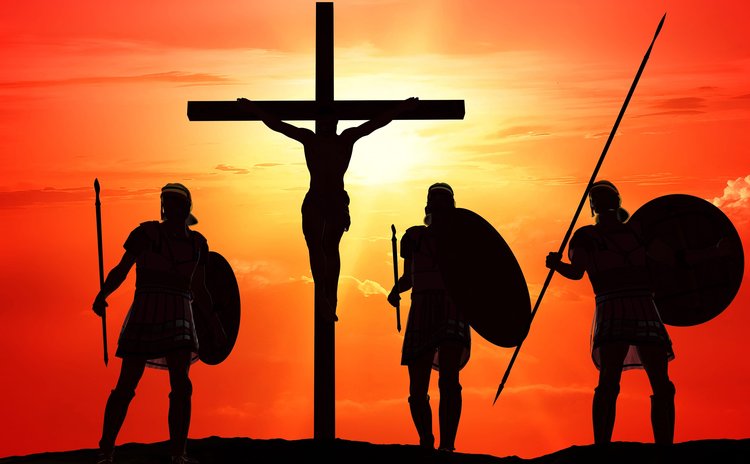Even in this era of COVID-19, Christians are resolute that the resurrection of Jesus Christ at Easter is not fake news

The just-ended Easter celebration was a comforting message for Christians in churches around the world where the covid-19 pandemic forced the substitution of in-person fellowship to pixelated preaching and praying.
For many Christians, Easter is the most important day in the church calendar, the culmination of Holy Week and the commemoration of Christ's triumph over death. According to accounts in the New Testament, Mary Magdalene and others went to Christ's tomb on Sunday morning after he had been crucified on Friday. Transfixed by fear, they found the tomb open, with the stone rolled away, and an angel told them: "He is not here. He is risen."
For believers the story of Christ's resurrection is the fulfillment of Biblical prophecy and the source of faith in an afterlife. Yet in 2021 the deadly coronavirus made Easter the hardest day yet for many. Because of covid-19 many Christians felt as those Apostles did after the crucifixion- numb, frightened, helpless and, perhaps, especially if they have lost a job or a loved one due to covid-19, hopeless.
But Easter offers hope to Christians of all denominations. As Australian Catholic Bishops Conference president and Archbishop of Brisbane Mark Coleridge said recently after his second successive COVID Easter: "The world breaks everyone and afterward many are strong at the broken places."
Those bleak words, Archbishop Coleridge said "take us first to the dark mountain of Calvary'' on which the violence of sin broke Jesus on the cross.
"Yet Easter does not leave either Jesus or us broken on the dark mountain. It takes us, strangely, into the morning light of the resurrection", promising strength in "the brokenness of our life, of our family, of our church, of our nation, of the world" that sorrow can be turned to joy, fear to love, anxiety to calm and hostility to fraternity".
So on Monday 3 April, Easter Monday, thousands of Dominicans, in person and on ZOOM, joined more than one billion Christians around the world to celebrate Easter. Most who participated in the celebration once again stood in wonder of the power of the living God who died on the cross, rose from the dead and promised to save a world full of sinners. Easter has been described as the essence of the Christian faith and Christians believe Easter (the resurrection of Christ) is the real reason for life on earth. If there is no Easter, no resurrection, no crucifixion, Christianity is then an enormous hoax, a gigantic centuries-old fake.
At Easter every year, Christians celebrate the resurrection, God raising His Beloved Son from his earthly grave. But to many Christians, Easter symbolizes the fact that the majestic God can also work wonders to transform the most wayward life of the most terrible sinner. Jesus rising from the grave tells us if we live like Him, we too will one day rise from the grave and live for eternity.
But because of covid-19 and devastating storms, like the category five Hurricane Maria that shattered the lives of almost every Dominican on 18 September 2017, many Christians have asked that question: why would a holy and compassionate God allow nature (ferocious wind and angry water and a deadly virus) to inflict such havoc on saints, sinners and every soul in between? Does that mean that God is dead? Does that mean that God doesn't care anymore? And does that mean that billions of Christians are wasting their time celebrating such events like the death and resurrection of a Jesus Christ who never existed as the Son of God? As many Dominicans have suggested, are Hurricanes Maria and David and covid-19 severe punishment from God because we have drifted, with impunity, so far away from His basic teachings?
Nevertheless, Dominicans must realise by now that they are largely responsible for the level of destruction that these storms leave in their wake. In other words, we should not blame the rivers for sweeping away houses and humans during a storm when we build on the river banks; we should not blame landslides for taking away roads and bridges when we cut trees on the slopes; we should not blame the wind for taking away our roofs when we allow our carpenters to build weak structures and our Government to consistently fail to improve our economy so that we can never be resilient. It is an irrefutable fact that poor people cannot be resilient.
So, God is in control of the elements, the wind and the rain, and the viruses but he gave man the will to determine his circumstance, to advance his level of resilience. But as Christians of all religious denominations all over the world celebrated Easter they also recognised that Easter is essentially a celebration of hope.
Anglican Primate and Archbishop of Adelaide Geoffrey Smith expressed the belief well when he said: "We continue to see much darkness over the world. We have travelled through the darkness of COVID-19. We have seen the darkness of racism and the darkness of domestic violence and the darkness of gender inequality and the abuse of women. Thankfully, light has begun to shine on these and other areas. There has been the light of vaccine development, the light of people speaking out, the light of public awareness".
And for Dominicans struggling in the despair of covid-19, Easter brings the light of hope.
"For there is always light, if only we're brave enough to see it. If only we're brave enough to be it," recited Amanda Gorman in the poem "The Hill We Climb".




